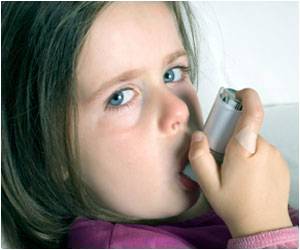Ragweed Medication Information
Discover comprehensive details about Ragweed, including its pronunciation, uses, dosage instructions, indications, and guidelines on how and when to take it or avoid it.
The updated prescription information covers potential side effects, precautions, warnings, and storage recommendations.
Additionally, explore the Ragweed brands available in India and internationally, along with pricing information. For personalized advice, consult your healthcare provider.
Generic Name : Ragweed Pronunciation : raeg-widBrand Names or Trade Names of Ragweed
India :
Ragwitek
Overview of Ragweed
Short ragweed pollen is an allergen extract used as an immunotherapy for treating patients suffering from short ragweed pollen-induced allergic rhinitis (nasal allergy with running nose and sneezing), with or without conjunctivitis (eye allergy) after a confirmed positive skin test.Why is Ragweed Prescribed? (Indications)
Ragweed tablets contains pollen allergen extract obtained from the short ragweed plant named Ambrosia artemisiifolia, used for treating ragweed positive allergic rhinitis patients in the age group of 18-65 years.When should Ragweed not be taken? (Contraindications)
Ragweed should NOT be used in patients:• With severe, unstable or uncontrolled asthma.
• With a history of any severe allergy to allergen immunotherapy.
• With a history of eosinophilic esophagitis.
• With an allergy to any of the inactive ingredients contained in ragweed product.
• Below 18 years and above 65 years of age.
What is the dosage of Ragweed?
Ragweed is available as a sublingual tablet to be kept under the tongue which dissolves quickly for treating positive allergic rhinitis adultsHow should Ragweed be taken?
Treatment should be started at least 12 weeks before the onset of ragweed pollen season. Treatment must be continued throughout the season.The tablet should be taken with clean, dry hands and should be kept immediately under the tongue. It should dissolve completely. Do not swallow for minimum one minute.
Hands must be wiped clean after handling the tablet.
The initial dose should be taken under the supervision of a doctor with experience in allergic diseases. Patients must be observed in the hospital for at least 30 minutes following the initial dose.
No Food or beverage should be taken for 5 minutes after taking the tablet.
Autoinjector epinephrine should be kept ready by all the patients at home in case of an emergency like a severe allergic reaction. Patients are advised to read the information about epinephrine.
What are the warnings and precautions for Ragweed?
•Patients are informed to observe the signs and symptoms like dizziness, low blood pressure, high heart rate, chest pain, abnormal breathing sounds, cough, abdominal pain, vomiting, diarrhea, rash, pruritus, flushing, and skin rashes. They should seek immediate medical care and discontinue the tablet in this case.• In case of oral irritation or wounds, stop treatment with ragweed to allow complete healing of the oral cavity.
• Ragweed can cause life-threatening allergic reactions such as anaphylaxis.
• Do not administer ragweed to patients with severe, unstable or uncontrolled asthma.
• Ragweed may not be useful for patients with certain medical conditions that may reduce their ability to tolerate a serious allergic reaction.
• Ragweed may not be useful for patients who are unresponsive to epinephrine or inhaled bronchodilators or patients who are taking a beta-blocker group of medicines.
What are the side effects of Ragweed?
Gastrointestinal: oral itching (pruritus), oral paresthesia (nerve pain), tongue pruritus, lip swelling.Respiratory: Throat irritation.
Skin: Itching or pruritus.
Others: Ear pruritus, chest discomfort.
What are the other precautions for Ragweed?
Caution is needed in case of pregnancy as ragweed consumption is found to cause various abnormalities in the developing baby. Contact physician in for more information.The benefits of breastfeeding should be considered along with the mother’s clinical need for ragweed against side effects to taking a proper decision for usage of ragweed.
Patients have to read the medication guide before taking ragweed.
Ragweed tablets should be kept out of the reach of children.
In case of any upper airway compromise or esophageal inflammation or difficulty in breathing, instruct patients to discontinue ragweed and to contact their healthcare professional.
 MEDINDIA
MEDINDIA
 Email
Email











